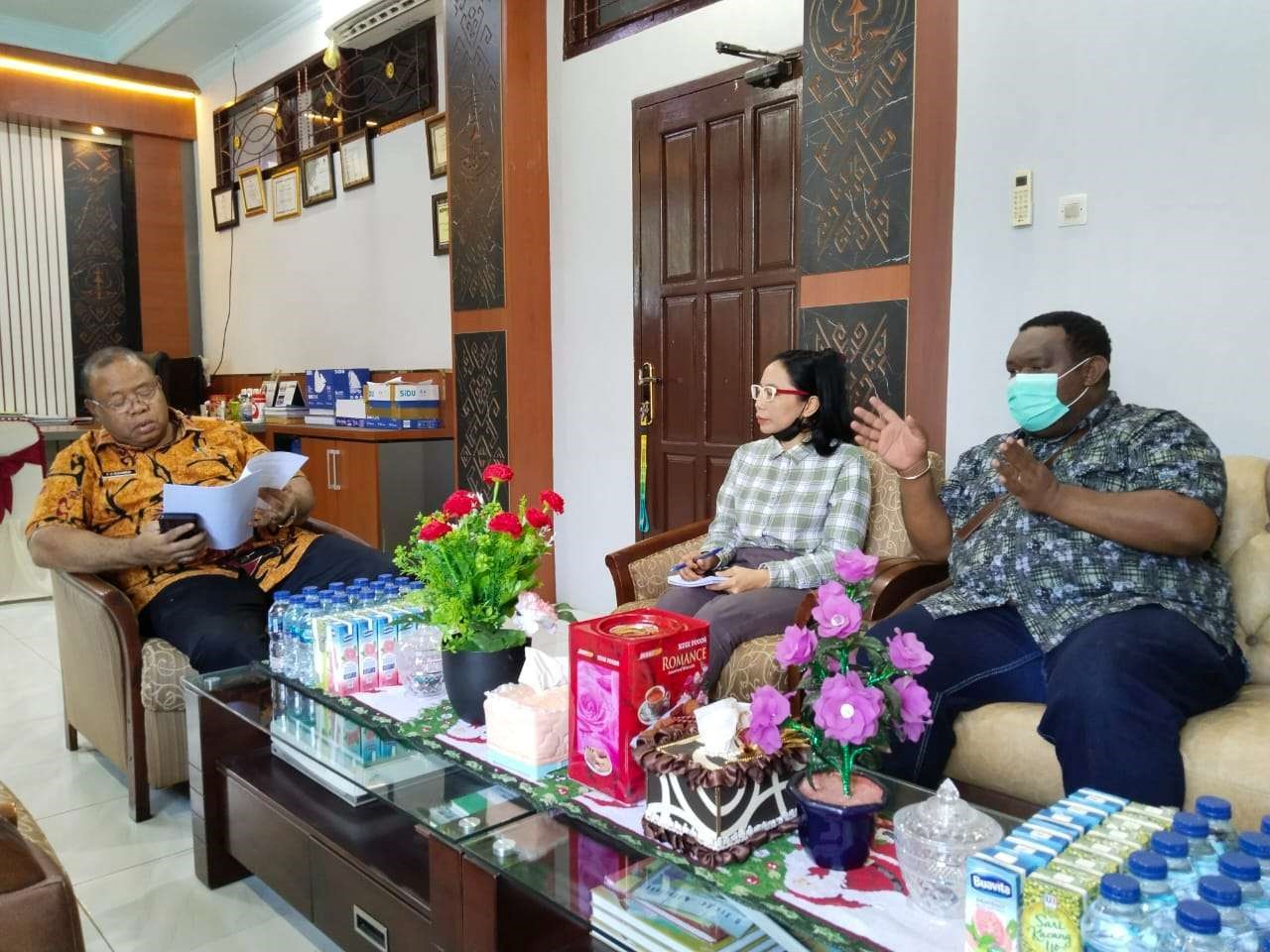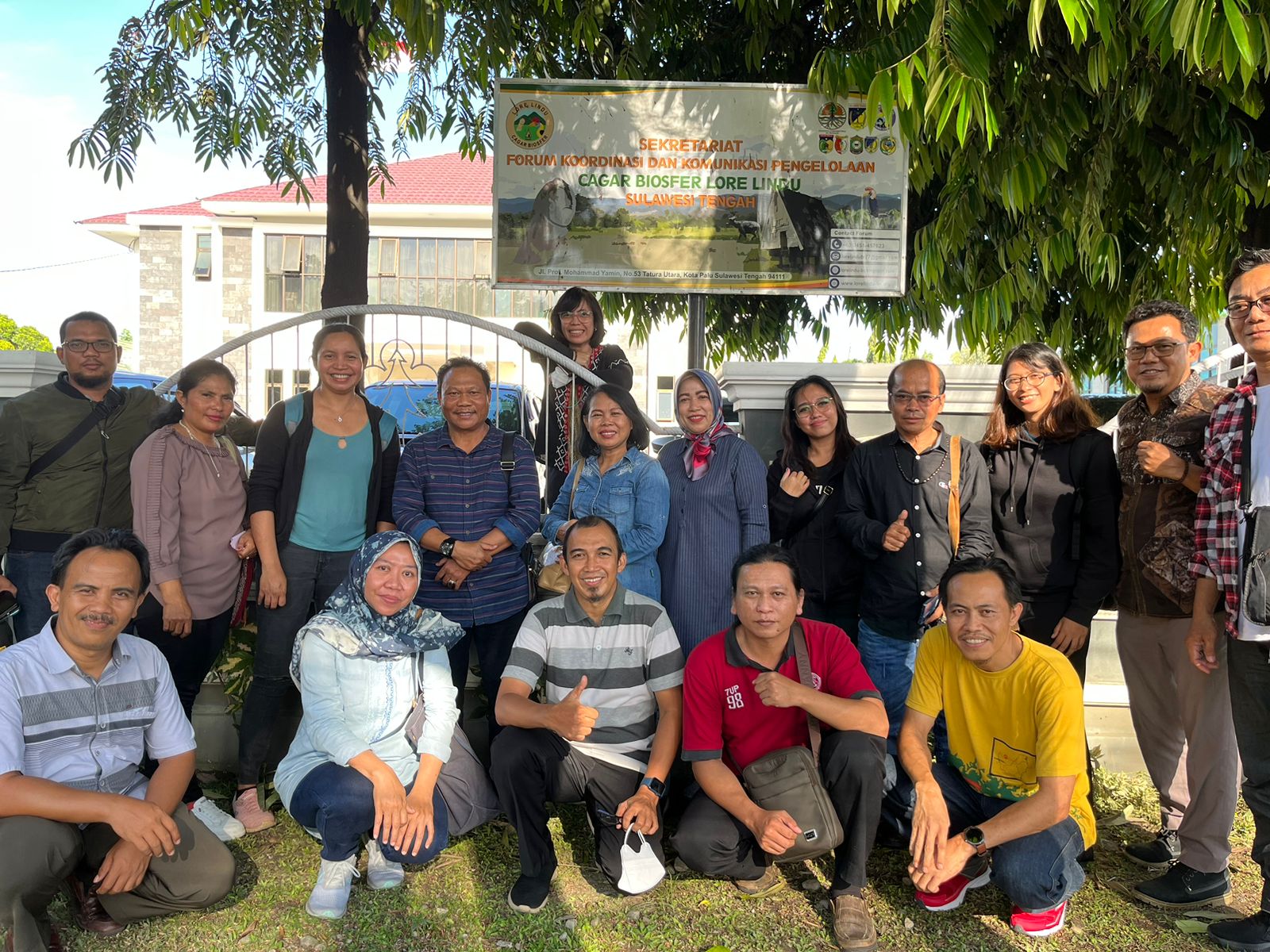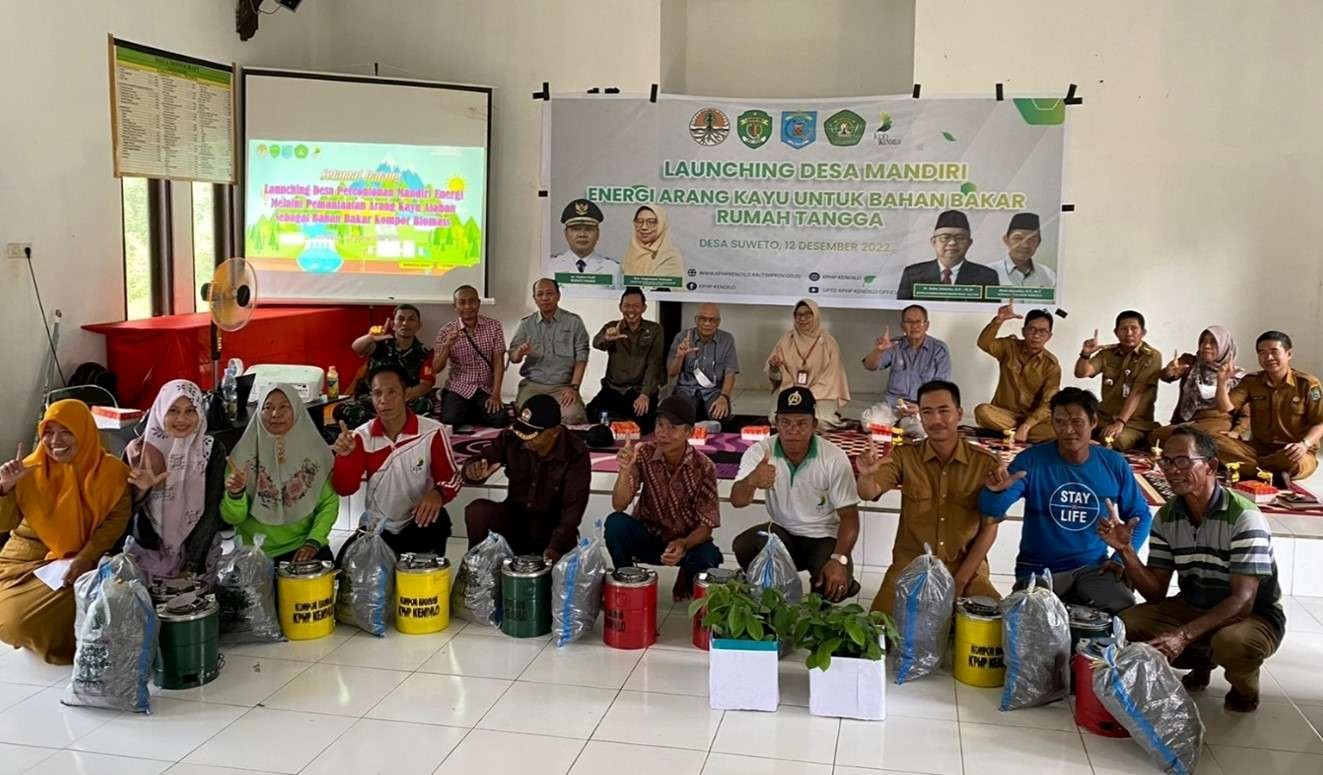FORCLIME
Forests and Climate Change ProgrammeTechnical Cooperation (TC Module)

Select your language

To commence activities for the new year of 2023, the West Papua Provincial Forestry Service held a coordination meeting with the University of Papua and FORCLIME on 5 January 2023 in Manokwari, West Papua. The meeting was aimed at the development of a work plan for 2023 that will encompass coaching clinics for Forest Management Units (KPH) operating within the province in an effort to adjust the Long Term Forest Management Plan (RPHJP) to bring it into line with Minister of Environment and Forestry Regulation No. 8 of 2021 on Forest Management, the Preparation of Forest Management Plans and Forest Utilization in Protected Forests and Production Forests, as well as with Decree of the Minister of Environment and Forestry No. 113/MENLHK/SETJENT/PLA.2/2/2022 on the Designation of Areas for Management Units for Protection Forest Management and Production Forest Management Units for the Province of West Papua. Through the issuance of this decree, the management area of the FMU is no longer based on watersheds (DAS) but is instead now based on administration. This means that the area and number of FMUs in West Papua Province have also changed and now number 14 units.
The coaching clinics for the preparation of the West Papua Province KPH RPHJP will be held from 19 – 21 January 2023 in Sorong, West Papua and are the result of a collaboration between the West Papua Forestry Service, the Faculty of Forestry at the University of Papua and GIZ FORCLIME. Moreover, each of these three parties will contribute to the implementation of this technical development.
During the meeting, the Head of the Forestry Service, Mr. Ir. Runaweri F., MM., also incorporated a number of activities that relate to capacity building into the 2023 work plan, including Training on Tree Species Identification and Dendrology. The training is intended to improve skills relating to the identification of species of forest tree among Forest Service and KPH staff. In addition, a further activity that has been incorporated into the work plan is the taking of an inventory of the various bio-geophysical, social, economic and cultural potentials that are present within the Tambrauw KPH area.
For more information, please contact:
Nita Yohana, Adviser for Sustainable Forest Management and Coordinator for West Papua Province
Mohammad Sidiq, Strategic Area Manager for Sustainable Forest Management and Coordinator for Papua and West Papua Provinces

The Betung Kerihun Danau Sentarum Biosphere Reserve (BKDSBR) of Kapuas Hulu has been established by UNESCO’s Man and the Biosphere (MAB) Programme since July 2018. In 2020, the Regent of Kapuas Hulu formed the Multi-Stakeholder Forum (MSF), consisting of 80 people in the secretariat forum, as a tool of coordination and communication between stakeholders, both from the government, the private sector and CSOs. During the implementation of the biosphere reserve programme, the MSF has experienced various obstacles and challenges. In response, representatives from BKDSBR conducted a visit to the Lore Lindu Biosphere Reserve (LLBR) from 12 - 16 December 2022 to see, study and exchange experiences regarding the management of biosphere reserves.
The arrival of the BKDSBR team was welcomed by the Head of the Central Sulawesi Province Bappeda, Dr. Ir. Christina Shandra Tobondo, MT. The LLBR team then took the BKDSBR team to several strategic locations currently under LLBR management, such as the LLBR secretariat in the Lore Lindu National Park, a shop selling various SME products produced by the LLBR (Rumah Coklat), a shop selling various forest management units products (Galeri KPH) and an orchid community group operating within the LLBR (Kareba Orchid of LLBR). Several important points were raised during the discussion, including in relation to the following areas:
- Coordination through multistakeholder forums, including the placement of an effective Biosphere Reserve secretariat.
- Synchronization of existing government plans with the Biosphere Reserve programme.
- The branding of Biosphere Reserve products through a product registration and verification system.
As a follow-up to this study visit, BKDSBR will implement various activities that have already been implemented by the LLBR, such as the placement of a biosphere reserve secretariat and synchronisation with government plans and budgets to support the biosphere reserve programme.
For more information, please contact:
Fikty Aprilinayati, Advisor for Sustainable Forest Management and Biosphere Reserve Management
Ismet Khaeruddin, Senior Adviser for Biodiversity Focal Point for the KFW Forest Program 3 and Provincial Coordinator for Central Sulawesi

To view examples of the utilization of forest products as an energy source at the site level, the Ministry of National Development Planning/Bappenas, supported by FORCLIME, held a recent field visit to the KPHP Kendilo forest management unit. This field visit took place from 11 - 12 December 2022 in Paser District, East Kalimantan and was led by Dr. Nur Hygiawati Rahayu, S.T., M.Sc., the Director of Forestry and Water Resources Conservation at the Ministry of National Development Planning/Bappenas. One of the Forest Farmers Groups (KTH) being assisted by KPHP Kendilo, which is called KTH Alas Taka, has run a charcoal production house that uses alaban wood (Vitex pinnata) since 2016. Currently, KTH Alas Taka can produce 15 tons of activated charcoal per month. This charcoal is used by the community in the KPHP Kendilo area, specifically within the village of Suweto, as an alternative energy source capable of replacing LPG as a household fuel. To support these activities, Mulawarman University also provided assistance to the community in the form of biomass stoves.
Field visit activities continued with an FGD that addressed the potential development of energy forests and the utilization of NTFPs for forestry development purposes, which was held on 13 December 2022 in Balikpapan. Led by Mrs. Dr. Nur Hygiawati Rahayu, S.T., M.Sc., this FGD was attended by the bioeconomy team, KPHP Kendilo and Mulawarman University. Among the results of the discussion were the need for government support in relation to the development of research and technology facilities, so that scaling up pilots will ultimately result in marketable products. Collaboration with related industry players and identification of partners is also seen as important in terms of developing the bioeconomy. If a new market is created in the downstream industry, then the community, with the help of the KPH, will be willing to plant other types of trees in accordance with demand.
For more information, please contact:
Nurdita Rahmadani, Junior Advisor for Monitoring, Evaluation and Reporting
Pipin Permadi, Senior Advisor and Liaison Officer
 |
Supported By: |
  |